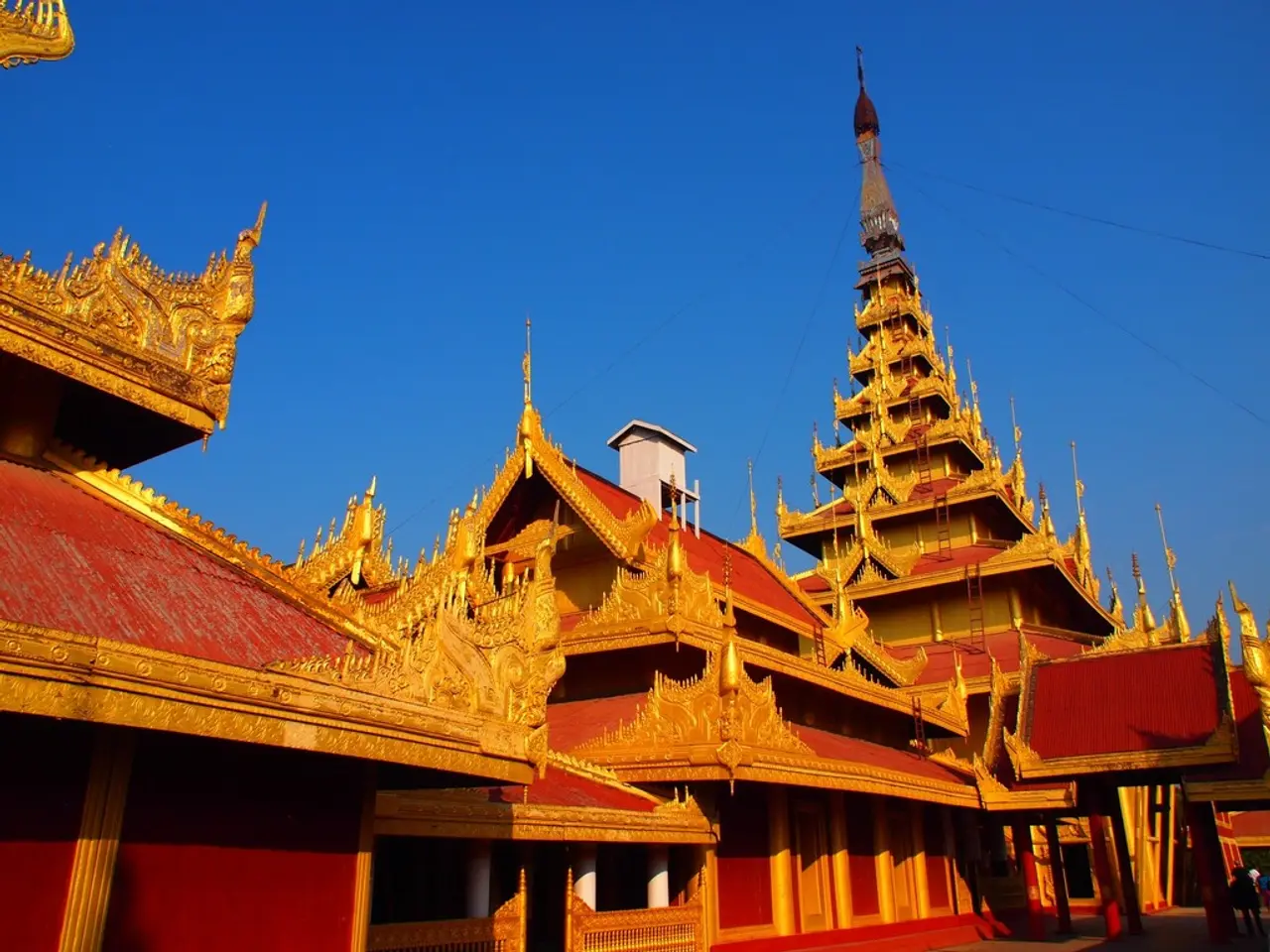Thai Prime Minister Paetongtarn Shinawatra Temporarily Suspended Due to Controversy Surrounding Revealed Conversation with Hun Sen
In a dramatic turn of events, Thailand's Constitutional Court suspended Prime Minister Paetongtarn Shinawatra on July 1, 2025, plunging the nation into a period of uncertainty and potential instability.
The suspension, a 7-to-2 verdict on a petition backed by 36 senators, followed an ethics investigation triggered by a leaked phone call with Cambodia's former leader, Hun Sen. The dialogue, released on June 15, featured Paetongtarn referring to Hun Sen as "uncle" and criticizing a Thai army commander as "opposing."
As the Prime Minister, Paetongtarn, at 38, is part of the Shinawatra dynasty, being the daughter of former PM Thaksin and niece of Yingluck. Her suspension deepens a long-standing standoff between the populist Shinawatra family and Thailand's conservative, military-aligned establishment.
Deputy PM Suriya Juangroongruangkit has been designated caretaker prime minister while the court weighs the case. The Bhumjaithai Party's withdrawal has resulted in the collapse of Paetongtarn's parliamentary majority, adding to the political turmoil.
The suspension highlights the fragility of Thailand's democratic institutions, the influence of the military and courts, and the recurring tensions that have sidelined Shinawatra-led administrations. Analysts warn of institutional upheaval if instability continues, including the possibility of a military coup.
The incident has sparked nationalist protests demanding Paetongtarn's resignation, and her approval ratings have plummeted to around 9%. The reasons cited for the suspension were dishonesty and breaches of constitutional standards.
As the court and legislature move forward, Thailand faces a critical juncture that may redefine its political landscape. The future leadership of the country, the fate of Paetongtarn's political career, and the direction of the nation's political system hang in the balance.
The coming days and weeks will be crucial in determining the precise trajectory of Thailand's political scene. The Constitutional Court will decide whether to permanently dismiss Paetongtarn, and remaining partners are weighing their options, with some signaling possible support shifts.
[1] As of the time of writing, the court's decision regarding the permanent dismissal of Paetongtarn is pending.
- The pending decision by the Constitutional Court on the permanent dismissal of Paetongtarn signals a significant moment in Thailand's political landscape, potentially marking a shift in culture and policy-and-legislation.
- The suspension of Prime Minister Paetongtarn has ignited general-news debates about the influence of politics, warrior-and-conflicts, and crime-and-justice, as nationalist protests demand her resignation.
- Amidst the instability, analysts suggest that Thailand's political future could be redefined by the court's decision, with potential implications for its culture, foreign policy, and domestic policy.





